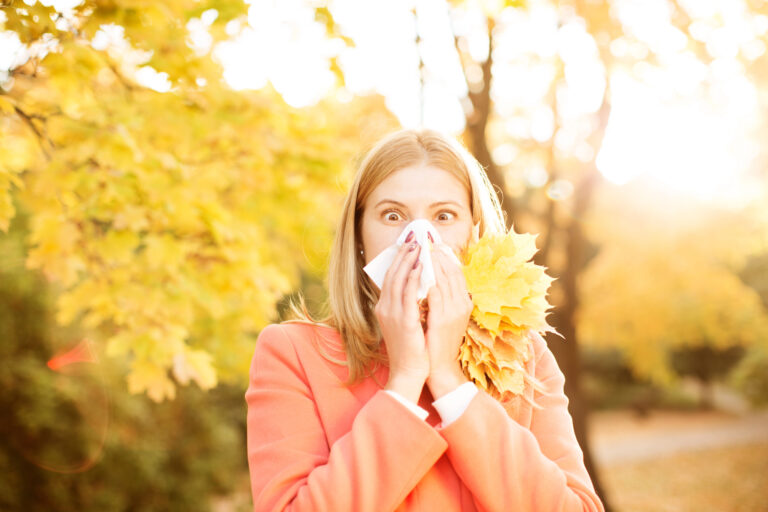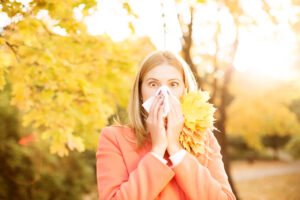As the seasons change, so too do the symptoms of hay fever (allergic rhinitis) for many of us. You might find that some years your symptoms are mild while in other years they seem more severe. Did you know that 1 in 5 Australians suffer from hay fever? In this newsletter, we’ll explore why hay fever symptoms can vary from year to year.
Why Hay Fever Symptoms Vary from Year to Year
Have you ever wondered why some years your hay fever symptoms are mild, while other years they are much more severe? Hay fever symptoms can fluctuate due to a combination of environmental factors. Here is a closer look at some of the reasons why one year might feel worse than another:
Weather Conditions: Variations in weather (such as rainfall, temperature and wind) can significantly affect pollen levels. For example, a wet spring can lead to a more intense pollen season as plants thrive and produce more pollen. Additionally, windy conditions can spread pollen more widely which increases exposure.
Pollen Seasons: The timing and overlap of different pollen seasons can vary each year. Some years may see overlapping peaks of tree, grass and weed pollens, leading to a more intense hay fever season.
Climate Change: Rising global temperatures and higher levels of carbon dioxide can extend pollen seasons and increase the potency of pollen. This can result in higher pollen counts and more severe hay fever symptoms over time.
Air Pollution: Pollution levels can also play a role in hay fever severity. Pollutants can interact with pollen particles, making them more allergenic and irritating to the respiratory system.
Understanding these factors can help you anticipate and manage your symptoms more effectively.
Tips to Reduce your Risk of Hay Fever
While we can not control the environment, there are ways to reduce your risk of experiencing severe hay fever symptoms.
Check Daily Pollen Counts: Websites and apps such as the Sydney Pollen Count offer daily pollen forecasts. Staying informed can help you plan your outdoor activities accordingly. This could mean planning for indoor activities when pollen count is high.
Limit Outdoor Exposure on High Pollen Days: On days when pollen counts are high, try to stay indoors during peak pollen times (usually early morning and late evening). If you need to go outside, wear a mask to help reduce your exposure and rinse your nose with saline when you return inside for the day.
Keep Your Home Pollen-Free: Keep windows closed during high pollen periods and use air conditioning to filter the air. Consider using a HEPA filter to remove pollen and other allergens from your home environment.
Practice Hay fever Hygiene: After spending time outside such as playing sports or returning home from school, take a shower and change your clothes to remove pollen from your body. Washing your face and hands can also help reduce symptoms.
Use Over-the-Counter Medications: Antihistamines, nasal sprays and eye drops can provide relief from hay fever symptoms. Our pharmacists are here to help you choose the right products based on your specific needs.
Consider Seeing an Specialist: If your symptoms are severe or persistent, you might benefit from seeing specialist for further testing and treatment options. Speak to your doctor for a referral to see a allergist or Ears, Nose and Throat (ENT) specialist.
References
- Australian Society of Clinical Immunology and Allergy (ASCIA): Hay Fever and Allergic Rhinitis
- National Asthma Council Australia: Managing Hay Fever
- Healthdirect Australia: Hay Fever



